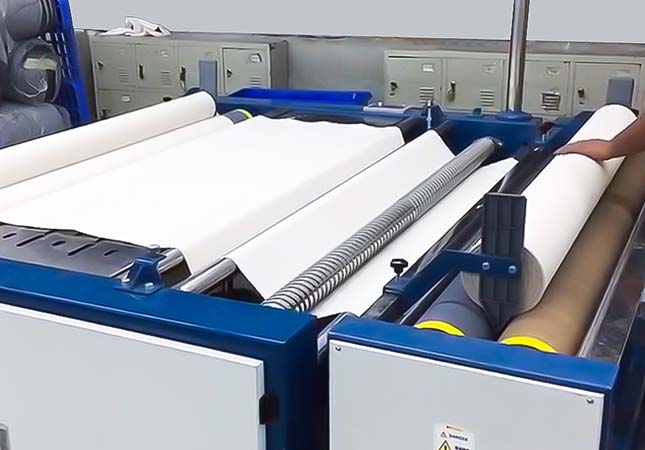The textile industry has come a long way since its early days of manual labor. Today, textile machinery plays a pivotal role in revolutionizing textile production processes. With the advent of advanced technologies, textile machinery has brought about numerous benefits, propelling the industry towards greater efficiency, productivity, and sustainability.

The Transformative Advantages that Textile Machinery Offers to the Textile Production Sector
1. Enhanced Productivity
One of the primary benefits of textile machinery is its ability to significantly enhance productivity. Machines can perform repetitive tasks with remarkable speed and accuracy, surpassing human capabilities. From spinning and weaving to cutting and sewing, textile machinery automates various labor-intensive processes. This increased efficiency translates into higher production rates, shorter lead times, and greater output consistency. As a result, manufacturers can meet the demands of a rapidly evolving market and stay ahead of their competitors.
2. Cost Efficiency
Textile machinery has a profound impact on cost reduction in textile production. While initial investments may be substantial, the long-term benefits outweigh the expenses. Automated machines minimize the need for manual labor, reducing labor costs and the associated expenses such as wages, benefits, and training. Moreover, textile machinery optimizes material utilization, minimizing wastage and lowering material costs. The precise control offered by machines also leads to fewer errors and defects, minimizing the cost of rework or rejects. Consequently, textile manufacturers can achieve higher profit margins while offering competitive prices to consumers.
3. Improved Quality
Quality is paramount in the textile industry, and machinery has played a crucial role in elevating production standards. Automated processes ensure consistency in measurements, stitching, and pattern alignment, resulting in superior product quality. Machines can maintain accurate tension, speed, and temperature control, leading to uniformity across the fabric. Moreover, automated inspection systems identify defects more efficiently than manual methods, enabling prompt corrections and reducing the likelihood of flawed products reaching the market. Consistent quality enhances customer satisfaction and strengthens a company's reputation.
4. Customization and Innovation
Textile machinery has facilitated customization and innovation within the industry. Advanced machines allow for greater flexibility in fabric design, pattern creation, and color customization. Digital printing technologies have revolutionized the industry, enabling rapid prototyping and small batch production without the need for costly and time-consuming setups. Manufacturers can now meet the demands for personalized products and cater to niche markets more effectively. Textile machinery has also accelerated the integration of smart textiles and functional fabrics, incorporating features such as sensors, conductive threads, and antimicrobial properties. This technological advancement opens up new possibilities for textiles in various sectors, including healthcare, sports, and fashion.
5. Sustainability
In recent years, sustainability has become a crucial focus in the textile industry, and machinery has played a vital role in promoting eco-friendly practices. Automated processes optimize resource utilization, minimizing waste generation and energy consumption. Modern machines are designed to reduce water usage, chemical usage, and carbon emissions, contributing to a greener production cycle. Additionally, machinery enables the use of recycled materials and promotes circular economy practices by facilitating processes such as yarn regeneration and fabric upcycling. By embracing sustainable textile machinery, manufacturers can reduce their environmental impact and meet the growing consumer demand for eco-conscious products.
Conclusion
Textile machinery has transformed the textile production landscape, bringing about numerous advantages that have revolutionized the industry. Enhanced productivity, cost efficiency, improved quality, customization capabilities, and sustainability are just a few of the remarkable benefits that machinery offers. As technology continues to advance, textile machinery will play an even more significant role in shaping the future of textile production, enabling manufacturers to meet the evolving demands of the market while driving sustainable and innovative practices.
SUNTECH Textile Machinery has the range of products encompasses almost all fabric types, including but not limited to pinking machine, loom machine, weaving machine, beam truck, fabric cutting machine, motorized beam trolley, beam storage, and fabric inspection machine. SUNTECH Textile Machinery continues to lead the textile industry with its innovative approach and extensive experience. We welcomes quotes and cooperation opportunities with open arms.




